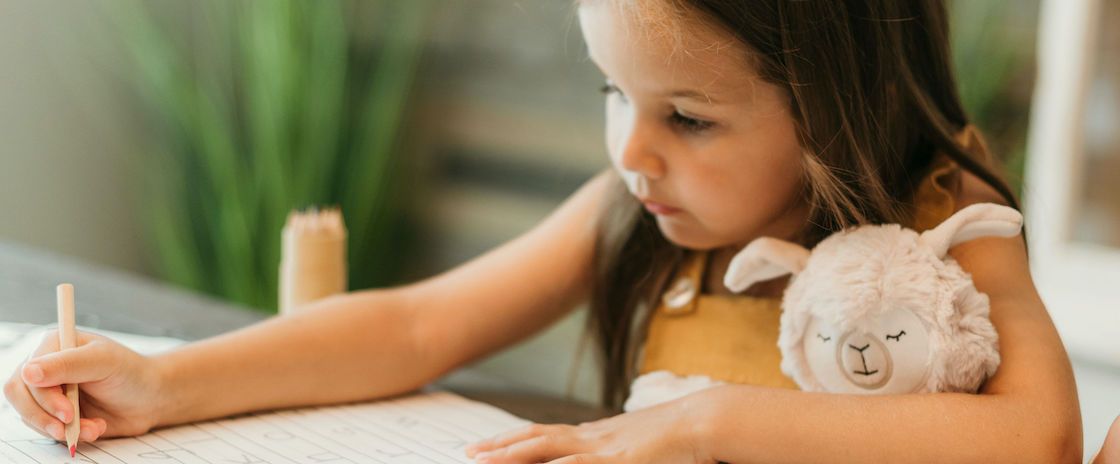
Parents, teachers, school leaders, private pre-schools, and government officials all continue to struggle with the best way to teach our children this fall. Some families are forced to make difficult choices, while others are struggling with the fact that they don’t have much choice in the matter at all. Our hearts go out to everyone working to navigate the challenges of this school year.
One of the most common questions we hear from parents is, ‘What lasting impact will this year have on my child’s mental health?’ The short answer? “We don’t know yet.” A multitude of variables impacts how a certain situation will affect a child. And there is not much research yet on the broader impact of a global pandemic on children’s mental health. But experts DO know quite a bit about children’s needs and the factors that help them get through tough times. Here are some effective ways to support each other through life’s challenges right now.
Exposure to Stress in the Family and Community
When parents experience stress, children feel it too. They are biologically wired to be attuned to the emotional state of their caregivers. We can’t fake it—our children know. Stress in the family and community can cause children to feel more anxious or worried. Those feelings can impact their thoughts and behaviors and chronic stress can have a lasting impact on children’s mental health. Here are ways to minimize the impact.
1. Own your Feelings: Say to your child, “I want you to know that mommy has been feeling stressed, all people feel stressed sometimes, I can handle my big feelings and I have other grown-ups to help me. I want you to know it’s not your fault that I’m stressed and you don’t have to worry about me.” Children will feel your stress even if you don’t say anything so it’s best to bring it up. Young children automatically believe it’s about them. You can correct that thinking by stating this clearly.
2. Engage in self–care: Anything you do to take care of yourself and reduce your stress will support your child’s mental health. Don’t forget this: your kids need you to take that extra 20-minute walk, even if they are begging you to stay home and play with them. It will be best for everyone if you can find ways to unwind.
3. Limit exposure to news sources: Think of the news as adult programming. Children don’t have the cognitive abilities or world knowledge to process information from the news and put it into context. If you want to keep your children informed on world events, do so in an age-appropriate manner. This will limit their exposure to vicarious trauma.
4. Support resilience building: Children can learn to be more resilient. Teaching little ones a growth mindset versus a fixed mindset (how can I help to fix it versus this is the way it is), as well as learning ways to practice stress reduction at home, can help children build resilience.
Lack of Predictability in Their Environments
Children are feeling all the changes in our lives. They need structure, routine, and consistency to feel safe and secure. Changes are okay sometimes, but too many can lead to feelings of insecurity. That lack of predictability can impact children long term. Try these tactics to add stability.
1. Offer predictability where you can: You may find your children holding on tighter to the routines and rules. We don’t have control over the bigger pandemic, but you do get to influence dinnertime and bedtime. Do your best to find a routine and stick to it. You’ll have to adapt sometimes but quickly find consistency again. Daily schedules are a great way for children to find their new normal.
2. Reinforce positive messages of safety and security: Remind your children of the things that will never change. Remind your child that you will always love them and support them no matter what.
3. Practice new routines: Kids learn as they play. So if you need to change your daily routine, make a change by playing first. Take turns being teacher and student, practice logging on and off the computer, and asking for help from the teacher if you are confused.
Experiences of Grief and Loss
Some children may experience the death of a loved one, while other children may be experiencing loss around environmental changes; like not being able to go back to school or seeing family and friends. No matter the type of loss, grief will likely accompany, it’s a natural human reaction. There are many ways to support children with grief and loss.
1. Offer space for emotions: Grief can show up in all different ways. Children may need to cry, play, or laugh. They may express grief by acting-out. Allow space for your little one to express emotions while setting necessary boundaries with behaviors.
2. Recognize your child’s perspective: When children show you their feelings, don’t try to talk them out of it. Children are highly sensitive and amazingly attuned to their environments. Even if it seems small or insignificant to you, it’s real to them—believe and tune into them.
If you feel your child isn’t getting the support they need because services have been disrupted, speak up, advocate for them, and seek out creative ways to get more support. Many new supports are available online, and in the community using social distancing protocols. Also check out our Slumberkins School for free resources that both teachers and parents can use to support children’s social and emotional development.
We won’t be able to shelter our children from everything. There may be things that occur during these times that are really hard, scary, upsetting, or even harmful to children. We won’t get through it perfectly, but we are all doing our best. After COVID-19 passes, we will have opportunities to heal, recover, and grow. We may be going through a collective trauma, but when this is over, we can go through collective healing. Together.











